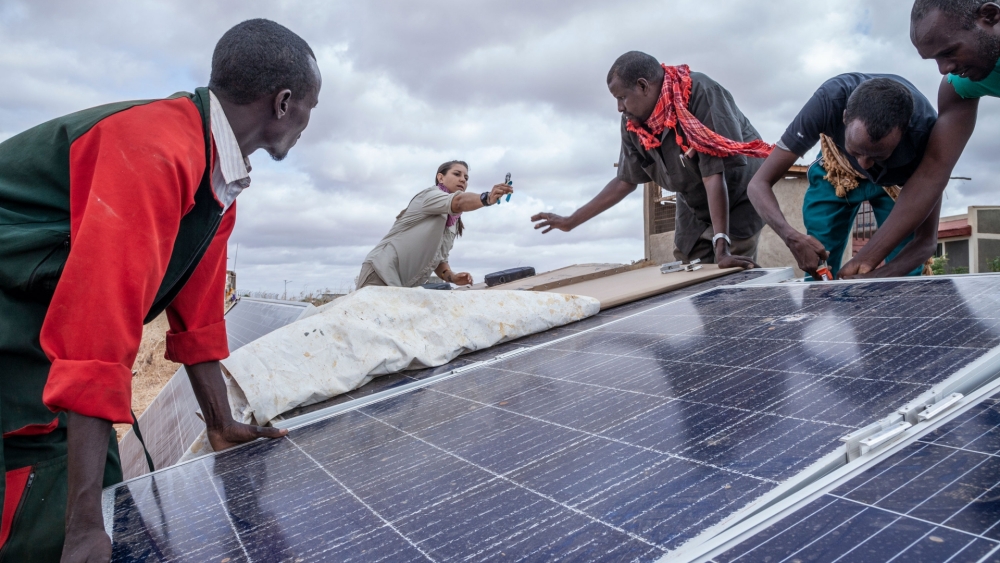In this section
In this sectionThis week the German Federal Foreign Office formally committed 21 million EUR to support the sustainable energy transition in displacement settings. The new Decarbonising Humanitarian Energy (DHE) Programme will reduce the costs and greenhouse gas (GHG) emissions associated with delivering critical humanitarian assistance in five countries in the Sahel Region. This funding forms the initial investment in the Multi-Partner Trust Fund (MPTF) and will provide multi-year support for scaling up sustainable energy solutions for organisations serving displaced people and host communities. The DHE MPTF will be implemented by the GPA Coordination Unit at UNITAR, NORCAP, and UNDP.
The majority of electricity supplied for organisations in displacement contexts comes from diesel generators – estimated by the GPA CU to cost over $100 million and emit more that 200,000 tonnes of CO2 globally. This presents a huge opportunity for sustainable energy solutions but these organisations often lack the technical capacity, funding, and local market environments to implement them. The DHE MPTF will use energy efficiency measures to first decrease electricity consumption, and then use renewable power to offset the remaining usage on fossil fuels, to reduce both costs and GHG emissions.
Under the DHE MPTF the consortium will deploy energy experts to provide technical assistance, develop business cases for project sites and organisations, and finance the implementation of sustainable energy solutions. New de-risking mechanisms, contractual frameworks and green financing opportunities will support the private sector in delivering viable, long-term solutions for organisations – and in extending the benefits of electricity access to affected communities directly.
This generous funding from the German Federal Foreign Office provides crucial support for scaling up sustainable energy in the Sahel region and represents a major step towards achieving SDG7 in displacement settings worldwide.
Last updated: 15/12/2022

